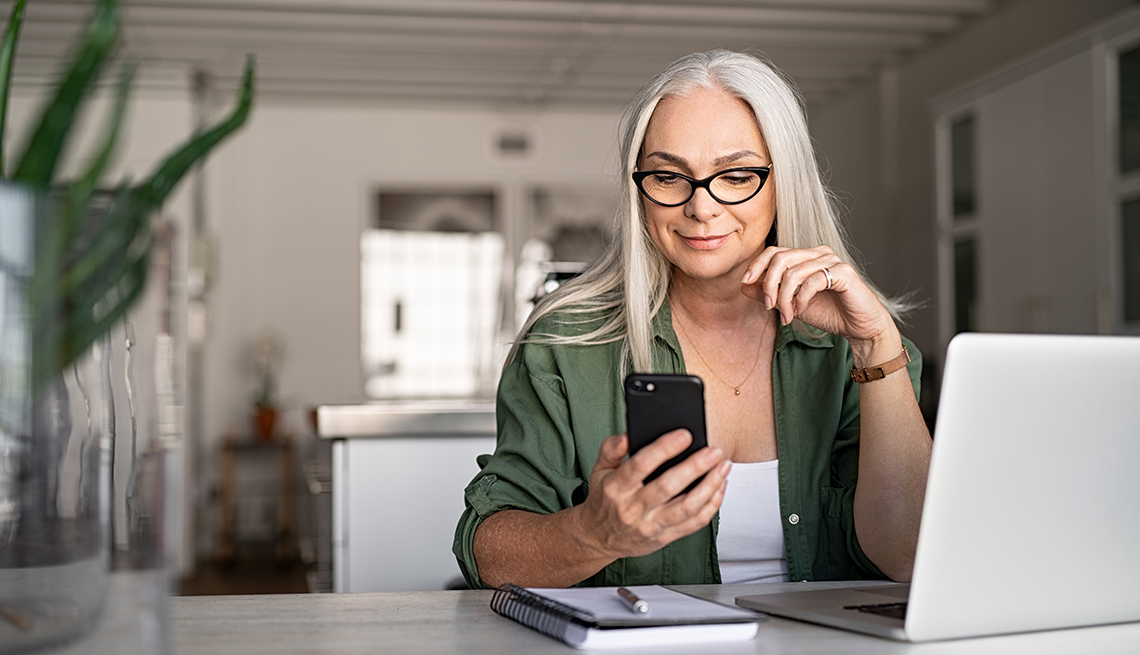Staying Fit
For many whose social isolation has been deepened by the COVID-19 pandemic, little is more nourishing than sharing time with someone warm and trustworthy on the other end of the phone. AARP's Friendly Voice program was set up to break through the wall of loneliness, made more formidable by social distancing.
How it works
- Volunteers recruited from across the country agree to call those who have signed up to hear from someone.
- Those seeking a call reach out to AARP's program through this link: aarp.org/friendlyvoice.
- The requests go on a roster that the volunteers use when making their calls. Those reached who are having a crisis are steered to appropriate help.


AARP Membership— $12 for your first year when you sign up for Automatic Renewal
Get instant access to members-only products and hundreds of discounts, a free second membership, and a subscription to AARP the Magazine.
The volunteers
Barbara Welcher, 69, of Augusta, Georgia, had big plans for this year, her first after retirement. She was going to take her first train ride, tour America from New York City to California and make a stop at South Carolina beaches. “COVID-19 changed those plans,” she says.
By the Numbers
- The Friendly Voice program has 275 volunteers trained to make calls.
- 4,100 people have signed up to receive friendly calls.
- Volunteers have engaged in more than 5,000 conversations to date.
Isolated at home, she began to look for ways to use her time to help others. “I found the Friendly Voice call center,” she says. “I love to talk, so it seemed ideal."
One thing was emphasized in training, Welcher points out: “We try not to focus on COVID-19. We talk about other things.” So she now chats with about five people a day, roughly three days a week.
Dorie Ciulla, 63, of North Hempstead, New York, tries to get the people she calls to talk about their lives. “I ask them, ‘If I were to visit your town, what would I see that would be interesting?’ “
Ciulla says she didn't know what to expect when she signed up for the program: “I'm not a social worker or a psychologist.” But once she got started, she adds, “it came naturally.”
Jerry Ziertman, 72, of Pompano Beach, Florida, has been part of the program since March and has reached as many as 50 people a week for several months.
He concedes that not every call ends on an upbeat note. “There are people who are extremely down or who are ill, and I can't pivot them.” The hope is that those people will stay with the program and that, over time, a series of calls may lift their spirits.
Callers don't make repeat visits with the same person — the idea is to avoid dependence on a single individual. The goal is that anyone who requests a call will speak with a volunteer on a regular basis.
Ideally, both people in the conversation gain from the experience. Says Ziertman: “If we end up sharing a laugh, that's a good call."
To sign up to receive calls, go to aarp.org/friendlyvoice



































































